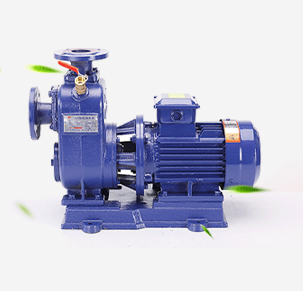TEL:
+86 13120555503
English
- Afrikaans
- Albanian
- Amharic
- Arabic
- Armenian
- Azerbaijani
- Basque
- Belarusian
- Bengali
- Bosnian
- Bulgarian
- Catalan
- Cebuano
- Corsican
- Croatian
- Czech
- Danish
- Dutch
- English
- Esperanto
- Estonian
- Finnish
- French
- Frisian
- Galician
- Georgian
- German
- Greek
- Gujarati
- Haitian Creole
- hausa
- hawaiian
- Hebrew
- Hindi
- Miao
- Hungarian
- Icelandic
- igbo
- Indonesian
- irish
- Italian
- Japanese
- Javanese
- Kannada
- kazakh
- Khmer
- Rwandese
- Korean
- Kurdish
- Kyrgyz
- Lao
- Latin
- Latvian
- Lithuanian
- Luxembourgish
- Macedonian
- Malgashi
- Malay
- Malayalam
- Maltese
- Maori
- Marathi
- Mongolian
- Myanmar
- Nepali
- Norwegian
- Norwegian
- Occitan
- Pashto
- Persian
- Polish
- Portuguese
- Punjabi
- Romanian
- Russian
- Samoan
- Scottish Gaelic
- Serbian
- Sesotho
- Shona
- Sindhi
- Sinhala
- Slovak
- Slovenian
- Somali
- Spanish
- Sundanese
- Swahili
- Swedish
- Tagalog
- Tajik
- Tamil
- Tatar
- Telugu
- Thai
- Turkish
- Turkmen
- Ukrainian
- Urdu
- Uighur
- Uzbek
- Vietnamese
- Welsh
- Bantu
- Yiddish
- Yoruba
- Zulu
Telephone: +86 13120555503
Email: frank@cypump.com
Jan . 10, 2025 09:55 Back to list
Vertical Slurry Pumps
Understanding the pivotal role of slurry pumps in industrial applications can significantly impact both efficiency and productivity. When it comes to finding the right slurry pump, especially with specifications such as 4 HP, it's crucial to delve into the practicalities, advantages, and correct usage, ensuring optimal performance. This discussion is not only informed by technical knowledge but enhanced by direct experience and insights from industry professionals.
Operational experience highlights the importance of proper installation and maintenance. Correctly aligning the pump and ensuring all connections are secure minimizes operational issues and prolongs the pump's lifespan. Regular maintenance, including checking for clogs or signs of wear and tear, helps prevent unexpected downtimes, which can be costly in industrial settings. Efficiency and reliability of slurry pumps also depend heavily on understanding and adapting to specific operational conditions. An authoritative source in pump technology might recommend a pipeline system analysis before installation. Adapting the pump setup to the viscosity and abrasiveness of the slurry guarantees smooth operation and reduces strain on the machinery, showcasing an experienced approach to slurry pump management. In terms of trustworthiness, manufacturers with longstanding reputations for quality engineering tend to offer the best slurry pumps. It's advisable to consult with these manufacturers or trusted industry publications during the selection process. Such companies often provide not just superior products but also support and technical guidance, ensuring that the slurry pump is not just a purchase but an investment into operational efficiency. In conclusion, the knowledge and experience brought forth by experts underscore that selecting and operating a 4 HP slurry pump effectively involves understanding technical specifications, aligning product capabilities with industrial needs, and maintaining a robust schedule of upkeep and assessment. Industries relying on these pumps will benefit from integrating these insights into their operational strategies, promoting seamless processes, safety, and sustainability.


Operational experience highlights the importance of proper installation and maintenance. Correctly aligning the pump and ensuring all connections are secure minimizes operational issues and prolongs the pump's lifespan. Regular maintenance, including checking for clogs or signs of wear and tear, helps prevent unexpected downtimes, which can be costly in industrial settings. Efficiency and reliability of slurry pumps also depend heavily on understanding and adapting to specific operational conditions. An authoritative source in pump technology might recommend a pipeline system analysis before installation. Adapting the pump setup to the viscosity and abrasiveness of the slurry guarantees smooth operation and reduces strain on the machinery, showcasing an experienced approach to slurry pump management. In terms of trustworthiness, manufacturers with longstanding reputations for quality engineering tend to offer the best slurry pumps. It's advisable to consult with these manufacturers or trusted industry publications during the selection process. Such companies often provide not just superior products but also support and technical guidance, ensuring that the slurry pump is not just a purchase but an investment into operational efficiency. In conclusion, the knowledge and experience brought forth by experts underscore that selecting and operating a 4 HP slurry pump effectively involves understanding technical specifications, aligning product capabilities with industrial needs, and maintaining a robust schedule of upkeep and assessment. Industries relying on these pumps will benefit from integrating these insights into their operational strategies, promoting seamless processes, safety, and sustainability.
Share
Next:
Latest news
-
Heavy-Duty Mining Sludge Pumps - Wear-Resistant Slurry Handling
NewsAug.02,2025
-
Horizontal Split Case Pump with GPT-4 Turbo | High Efficiency
NewsAug.01,2025
-
ISG Series Pipeline Pump - Chi Yuan Pumps | High Efficiency, Durable Design
NewsAug.01,2025
-
Advanced Flue Gas Desulfurization Pump with GPT-4 Turbo | Durable & Efficient
NewsJul.31,2025
-
ISG Series Vertical Pipeline Pump - Chi Yuan Pumps | Advanced Hydraulic Design&Durable Construction
NewsJul.31,2025
-
ISG Series Vertical Pipeline Pump - Chi Yuan Pumps | Energy Efficient & Low Noise
NewsJul.31,2025










